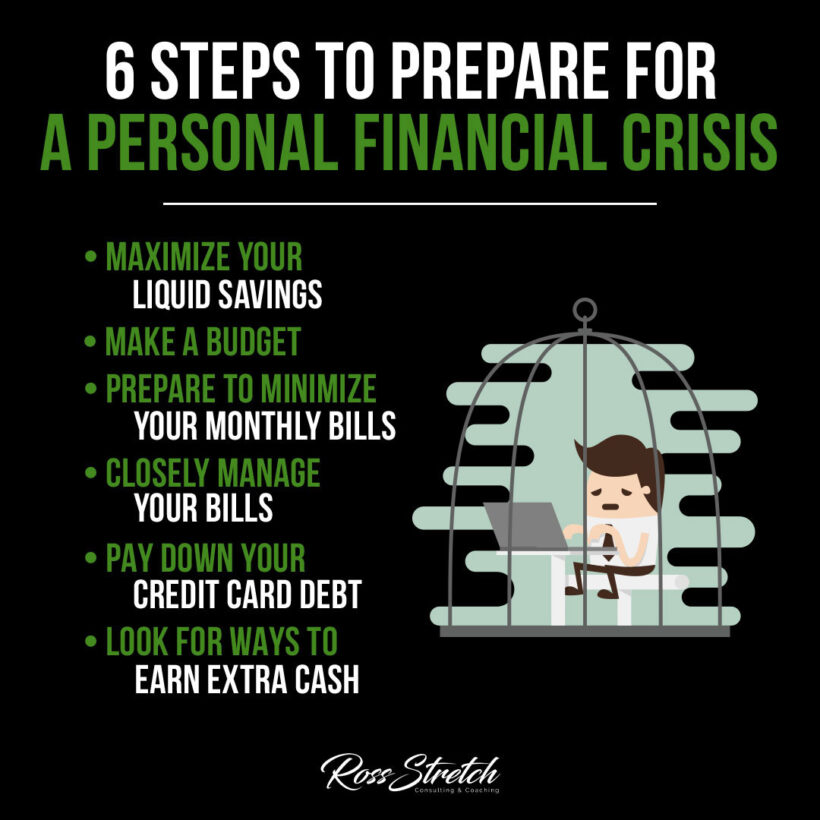Introduction
Life is unpredictable, and financial emergencies can arise when you least expect them. From sudden job loss to unexpected expenses, a financial crisis can throw off your stability. Preparing in advance can help reduce stress and protect your financial health. Here’s a practical guide with six steps to help you prepare for a financial crisis.
Maximize Your Liquid Savings
Building up an emergency fund is one of the best defenses against a financial crisis. Here’s how to start:
- Set a Savings Goal: Aim to save three to six months’ worth of living expenses in an easily accessible account.
- Automate Savings: Set up an automatic transfer from your checking account to savings to grow your fund steadily.
- Use a High-Interest Savings Account: Look for accounts with competitive interest rates to get the most out of your savings.
Make a Budget
A budget helps you track where your money goes and allows you to cut back on unnecessary expenses. Follow these steps:
- List All Income and Expenses: Understand your cash flow by writing down your monthly earnings and bills.
- Separate Needs and Wants: Focus spending on essentials and reduce discretionary purchases.
- Track Spending: Use an app or spreadsheet to see how well you stick to your budget each month.
Prepare to Minimize Monthly Bills
When facing a financial crisis, minimizing monthly bills can help stretch your resources further:
- Review Subscription Services: Cancel any subscriptions you’re not using, like streaming services or gym memberships.
- Negotiate Bills: Call service providers to negotiate for lower rates on utilities, insurance, or internet.
- Opt for Payment Plans: If facing difficulty, ask creditors about flexible payment options to ease immediate cash flow pressures.
Closely Manage Your Bills
Staying on top of your bills can help you avoid late fees and penalties, which can add up over time:
- Set Up Reminders: Use your phone or calendar to remind you when bills are due.
- Consider Automatic Payments: For essential bills, set up automatic payments to ensure you never miss one.
- Prioritize Payments: If funds are tight, focus on essentials like rent, utilities, and food before tackling other expenses.
Pay Down Credit Card Debt
High-interest credit card debt can drain your resources, especially during a financial crisis. Here’s how to reduce it:
- Target High-Interest Debt First: Pay extra on high-interest debts to reduce the total amount you owe.
- Consolidate Debt: Look into options like balance transfer cards with 0% introductory rates to consolidate debt and reduce interest payments.
- Set Small, Realistic Goals: Even paying a little extra each month can make a difference over time.
Look for Ways to Earn Extra Cash
Finding additional income sources can provide a financial buffer. Here are some ideas:
- Freelance or Gig Work: Platforms like Upwork or TaskRabbit offer short-term projects you can do in your spare time.
- Sell Unneeded Items: Clear out your closet or garage and sell items online to bring in extra funds.
- Use Your Skills: Offer tutoring, pet-sitting, or other services in your community to supplement your income.
Conclusion
Preparing for a financial crisis takes some time and discipline, but it’s worth the peace of mind it can bring. By saving, budgeting, minimizing expenses, managing debt, and finding extra income, you can strengthen your financial resilience. These steps will help you face any financial challenges with greater confidence and stability.


